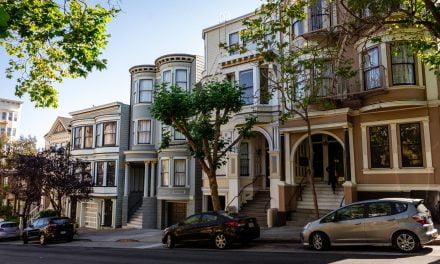The Anaheim City Council recently voted to ban short-term rentals (STRs), buckling under the pressure of an organized anti-STR campaign backed by not-in-my-backyard (NIMBY) activists and hotel industry lobbyists.
An STR is a single family residence (SFR) used as a rental for a total occupancy term of 30 days or less. For the duration of the stay, the occupancy is subject to the owner’s collection, payment and accounting for transient occupancy taxes. [Calif. Civil Code §1940]
Home-sharing websites like Airbnb and HomeAway allow homeowners to rent their properties as STRs — essentially converting residences into miniature hotels.
Anaheim’s 15% transient occupancy tax on STRs has produced over $3.2 million for the city in the past twelve months. [Anaheim Municipal Code §§2.12.005.040, 4.05.030]
The new ban goes into effect immediately for landlords who do not have an existing permit to operate an STR. Landlords with an existing STR permit — 363 homes, according to city officials — may continue to operate STRs until February 11, 2018 (or longer if they receive a hardship waiver from the city).
Anaheim will fine both the home-sharing websites and the owners who disregard the ban between $200 and $2,500 per rental depending on the number of violations.
Evolving STRs vs. NIMBYs and the shaken hotel industry
The popularity of home-sharing platforms among Anaheim landlords, vacationers and business travelers has been met with backlash by the hotel industry seeking to protect their turf. The cost to rent a room or whole house through these services can be less expensive than booking into an area hotel. Simultaneously, the fees paid for STRs bring in more revenue for landlords than traditional renters.
STR servicers argue the renovations made by rentiers to attract short-term occupants improve curb appeal and raise property values. They also note the service they offer helps to prevent foreclosures by providing an extra source of income for homeowners.
Related article:
Anti-STR NIMBYs (with the backing of the hotel industry) allege the short-term occupants are loud, messy, impede neighborhood parking and raise rents in the area. Their primary concern is gentrification, where the rising cost of living forces long-term, low-income residents out of their neighborhood and replaces them with high-income transient guests and tenants. They see the character of their community evolving as owners transition occupancies to wealthy tourists. Thus NIMBYs lash out at the most visible target — new online business operations — but turn a blind eye to the long-established hotel industry which creates the same offending transient occupancy conditions.
NIMBYs need a reality flashback — Anaheim has already changed. Anaheim is a city of 350,000 where more than 20 million tourists flock each year — fewer than 400 STRs have no significant effect on the character of the city’s community.
That’s not to say their concerns are without merit. Gentrification is an issue worth caring about in Anaheim — long-term tenants lead to a more stable neighborhood where residents build a sense of ownership and community. STRs do pose a (limited) threat to low-income renters who might see their rents rise due to online transient guest demand with opportunities for local landlords to increase revenue based on the city’s promotion of tourism. However, STRs did not cause this demand — Disneyland, the Anaheim Convention Center and two major league sports venues did, all divined by past city councils and mayors.
Related article:
Anaheim residents concerned about a cure to rising prices in their community are best served by focusing their ire on the city’s exclusivist zoning policy which favors hotels and commercialism over housing for locals. Multi-use inclusionary housing is the primary solution if Anaheim intends to keep residents in the community. How else will they collectively share the economic growth as one of California’s biggest attractions?
Ask yourself this question: would the Anaheim City Council have voted to ban STRs but for the wants of the hotel industry to preserve their occupancy rates as tourists nationally shift to STRs?
The Anaheim City Council had the option to address this issue with more precise regulation for STR properties — as has been done in other Southern California communities.
Short-term occupancy advocates asked the city to limit stays to 90 days per year rather than impose a blanket ban. This compromise would have allowed Anaheim to continue collecting tax revenue from short-term owners and occupants while quieting neighborhood outrage at foreign tourists and their money.
In Anaheim, no organized effort exists to counter the influence of the conservative hotel industry or campaign for dense, multi-use inclusionary housing. Thus, STR servicers and homeowners are an easy self-satisfying, but short-term target.
Meanwhile, Airbnb and HomeAway have responded with a lawsuit against the city. This type of open-market litigation will quickly cost the city more than the STR bed tax revenues. They allege the ban on STRs violates both the First Amendment by restricting rental listings and the 1996 Communications Decency Act which protects websites from liability due to content posted by users.
How has the city responded? By approving the biggest tax subsidy in Anaheim history to luxury hotel developers, not zoning for their constituency of local housing developers.
Check back with the first tuesday Journal to see how this STR war evolves.














